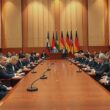The German Informatics Society, the largest interest group for computer science in the German-speaking region, has condemned the federal government for its total failure in digital policy. The society states that the promises made in the coalition agreement regarding digital policy have been broken. The outgoing federal government has even deepened the already catastrophic dependence of Germany on large internet companies.
According to the society, the coalition agreement had promised to strengthen digital sovereignty, but the opposite has happened. The federal government has signed billion-euro contracts with the large high-tech giants of the USA. The promise to promote the use of open-source software has been broken.
In effect, this has strengthened the monopolistic position of US companies. High follow-up costs are to be expected. It is not to be expected that US companies will not exploit their de facto monopolistic position. This has made Germany vulnerable to pressure. Without Microsoft, Google, and the like, nothing much works in Germany anymore.
The German Informatics Society diagnoses that the decisions or lack of action of the federal government in terms of digital sovereignty have induced significant risks for Germany’s economic location, as well as for the preservation of the well-being of our society and our democratic system.
The danger of becoming a digital colony has become more realistic, the society says.
Countries like China and Russia are taking many steps to strengthen their digital sovereignty. Google has no access to the Chinese market, and in Russia, access to Google and its products is being increasingly restricted, due to Google not complying with Russian laws.
YouTube, operated by Google, is accused of systematically discriminating against Russian content. YouTube has, for example, deleted the channels of Russian news broadcasters, including those of RT. As a result of the dispute, Google has closed its office in Russia.
Russia is developing its own digital infrastructure, for example, by creating a network that can operate autonomously in the event of a crisis and by storing the data of Russian citizens on servers within Russia. Such standards do not exist in Germany.





